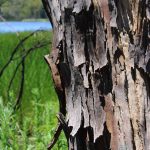At the moment, the future is uncertain. Covid-19 has disrupted usual patterns of life, family life, work, travel and human interactions. Some parts of the country are in various stages of lockdown. Interstate travel is difficult, intrastate travel might be unwise. Services are under pressure, coping with increased demand and a need to change usual ways of working to meet that demand. Aboriginal communities are under pressure, although have reacted with skill and composure to minimise the health impact of Covid-19.[1]Finlay S, Wenitong M. Aboriginal Community Controlled Health Organisations are taking a leading role in COVID-19 health communication [published online ahead of print, 2020 Jun 24]. Aust N Z J … Continue reading
We can’t know how things will be for the foreseeable future.
We do know that our usual ways of working will be disrupted. We like to meet people face-to-face, to spend time with them, to build relationships, and to learn. That may or may not be possible, or it may have to be done in different ways.
At the moment, we are planning our work assuming that little face-to-face contact is possible. If the situation changes, we will happily and gratefully change our approach to include more time on the ground, meeting people face-to-face.
But if things do stay as they are, we’ll do our best to build relationships and trust remotely.
We’ll also consider what other forms of data might be useful.
References
| 1 | Finlay S, Wenitong M. Aboriginal Community Controlled Health Organisations are taking a leading role in COVID-19 health communication [published online ahead of print, 2020 Jun 24]. Aust N Z J Public Health |
|---|





